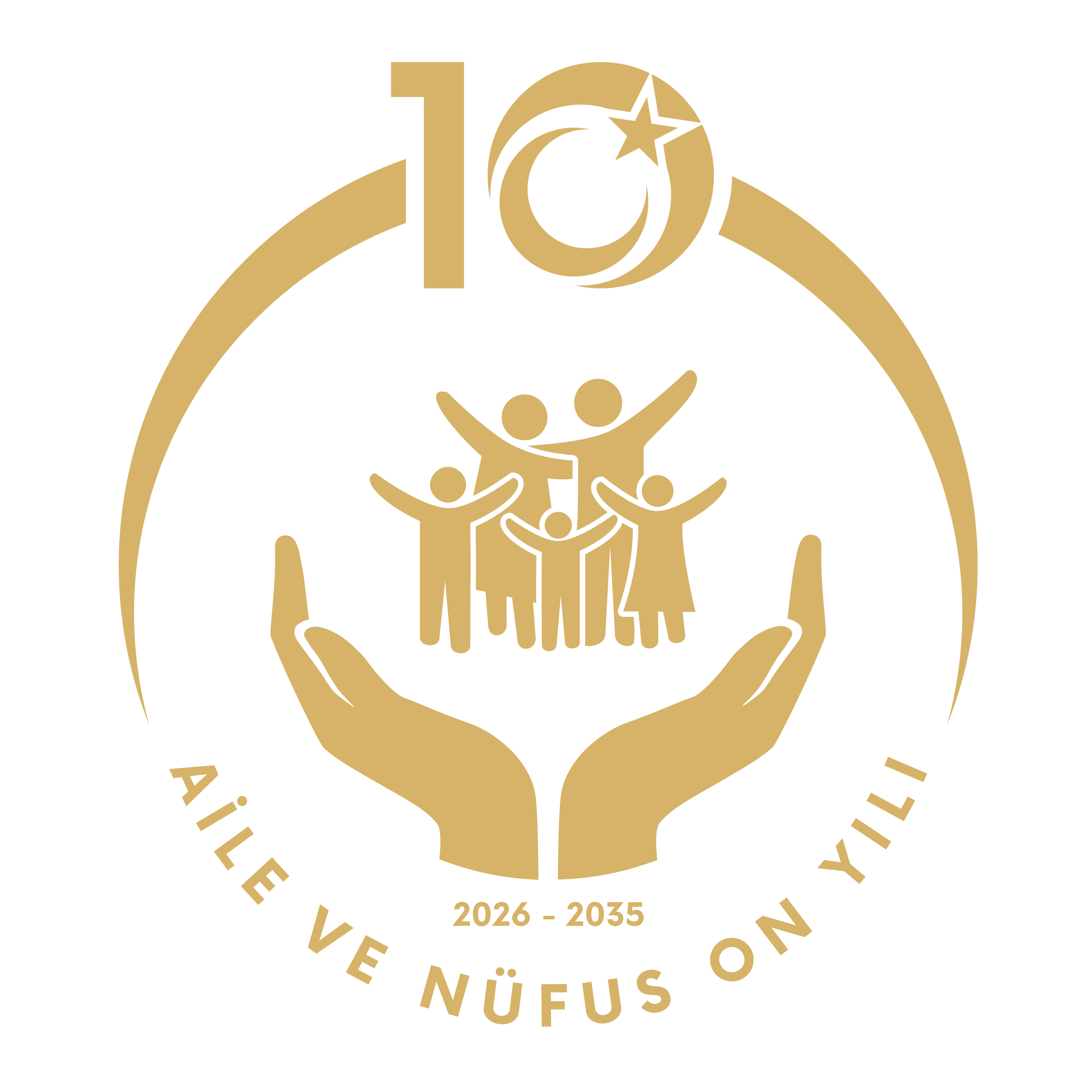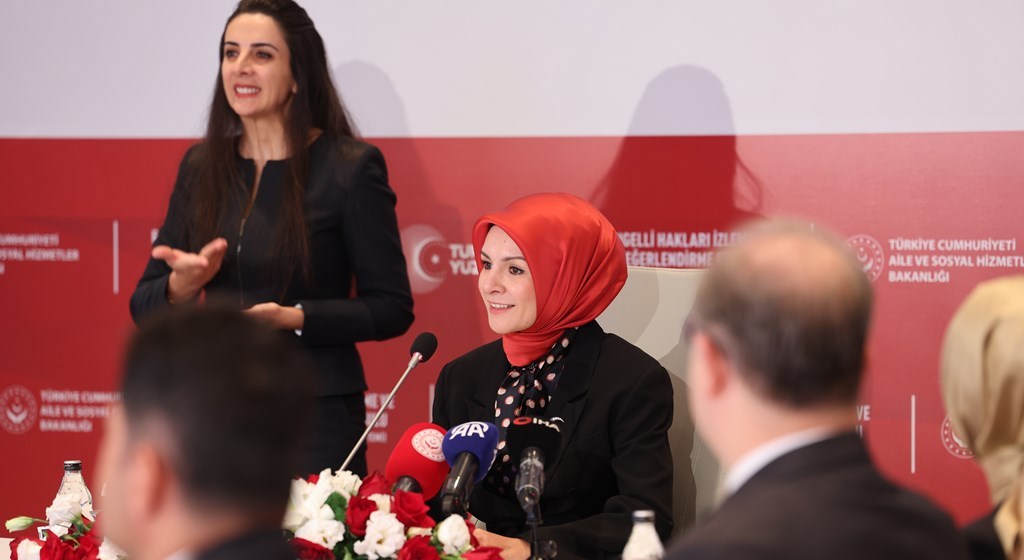Minister Mahinur Özdemir Göktaş attended the Monitoring and Evaluation Board on the Rights of Persons with Disabilities Meeting
Minister of Family and Social Services Mahinur Özdemir Göktaş stated that the establishment of a "Long-Term Care Assurance System" became very important in meeting the needs of persons with disabilities and older persons, and stated that the goal was to establish a country-specific system that was compatible with the values of the country, had continuity, and took into account, the benefits of citizens.
Minister Göktaş chaired the Monitoring and Evaluation Board on the Rights of Persons with Disabilities Meeting held at the 75th Year Nursing Home Elderly Care and Rehabilitation Center with the agenda of "Long-Term Care Assurance System", which was attended by representatives of various ministries and civil society organizations.
Speaking at the meeting, Göktaş reminded that the 2030 Barrier-Free Vision Document, setting out the national vision and roadmap of Türkiye in disability, was announced by the President of the Republic of Türkiye H.E. Recep Tayyip Erdoğan on the International Day of Persons with Disabilities on December 3, 2021, and said: "We are carrying out the legal, institutional and practical actions to protect and improve the rights of persons with disabilities with a strong cooperation, coordination and most importantly, with a participatory approach."
Minister Göktaş stated that the importance attached to the 2030 Barrier-Free Vision was clearly reflected in the "National Action Plan on the Rights of Persons with Disabilities" and that in the light of the feedback received in the first 6 months of the action plan, the agenda of today's meeting of the Board was set as "Long-Term Care Assurance System".
"Older population and the number of persons with age-related disabilities are increasing in the country"
Pointing out that Türkiye was also affected by the demographic transformation taking place all over the world, Göktaş reported that the proportion of older population and the number of persons with disabilities increased in the country due to age.
Göktaş said, "As the Ministry, it is the priority to strengthen the family-oriented and community-based services and practices. In this context, we are expanding home care support, home care allowance, home-based social service institutions and day care centers across the country."
Reminding that citizens were provided with home care allowance since 2006, Göktaş stated that the Ministry had made home care allowance payments to 566.000 persons providing care services to citizens with disabilities.
Göktaş stated that with the pilot implementation of the Home Care Support Program, the Ministry supported persons with disabilities and caregiver families living in their own homes and shared the burden of care, and explained that it was aimed to expand the pilot implementation, which the Ministry continued in 3 provinces, across the country.
Noting that the Ministry provided day care services for persons with disabilities and older persons in 171 day care centers across the country, as well as social, cultural activities and counseling services, Göktaş said that the Ministry provided day care services to persons with disabilities in these centers in order to be a breath of fresh air for dedicated lives and to support families to spare time for themselves.
Göktaş also emphasized that the residential care services offered in line with the needs and demands of persons with disabilities and older persons continued in a manner befitting human dignity.
"Approximately 14.500 senior citizens benefit from 168 nursing homes"
Stating that the Ministry provided care services to approximately 36.000 persons with disabilities in 107 care centers for persons without disabilities and 309 private care centers for persons with disabilities, Göktaş said that the Ministry made payments from the Ministry's budget to private care centers concerning persons with disabilities meeting the criteria specified in the law. Göktaş continued as follows:
"Approximately 14.500 older citizens benefit from 168 nursing homes affiliated to the Ministry. Of course, this is the part of the Ministry. There are also dimensions such as health care, economic and social security, and participation in social life. The long-term care system includes social and health care services and personal support that are determined by assessing the needs of persons with disabilities and older persons. It has become very important to establish an individual-oriented, community-based, quality, dignified and sustainable 'Long-Term Care Assurance System'."
Reminding that the establishment of the Long-Term Care Assurance System was included in the 11th Development Plan, the National Action Plan on the Rights of Persons with Disabilities and the Annual Program of the Presidency, Göktaş said that the Ministry would hold an expert-level technical workshop with the participation of relevant parties following the meeting.
Emphasizing that there were internationally established systems on the issue and that we were closely following academic studies and field examples, Göktaş said, " It is the aim of Türkiye to establish a country-specific system that is compatible with the values of the country, that has continuity, and that takes into account the benefits of its citizens."
Stating that the meeting and workshop were the result of the importance attached to cooperation and common sense, Göktaş said that a sub-working group would be established within the Board, a detailed study on the model would be conducted and the Board meeting in December would be held with the same agenda.












